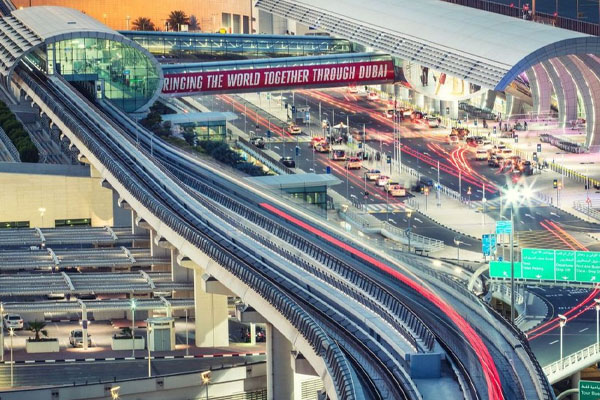Propelled by strong growth throughout the first three quarters of the year and anticipation of an exceptional surge in guest numbers in the final quarter, Dubai Airports is forecasting annual passenger traffic at Dubai International (DXB) to reach 86.8 million – surpassing 2019 traffic.
DXB commenced the second half of 2023 with its growth story continuing unabated, with average monthly traffic reaching 7.6 million, tracking pre-pandemic levels throughout the third quarter. The world’s largest hub recorded 22.9 million passengers in Q3 – the highest quarterly traffic since 2019, taking the total year-to-date traffic for the first nine months of the year to 64.5 million passengers, up 39.3% compared to the same period in 2022 and 1% above 2019.
Dubai Airports is expecting record-breaking numbers to continue in Q4 and 2024. To accommodate growth and to achieve the company’s ambition of revolutionising the guest journey at DXB, Dubai Airports is undertaking a strategic project to expand infrastructure capacity while enhancing operational efficiency. With a current capacity of 100 million passengers annually at DXB, the deployment of innovative technology, expansion and refurbishment of existing infrastructures and more efficient use of its space and resources is expected to propel the airport’s capacity to 120 million.
As Dubai tops the list of cities with the highest spending by international visitors with a total earning of $29.4bn , and the Emirate at the forefront of deploying the latest technologies, Dubai Airports has continued to work closely with its stakeholders to provide guests the experience they expect from Dubai.
With 8.9 million passengers in the first nine months of the year, India was DXB’s top country destination in terms of traffic volume, followed by Saudi Arabia with 4.8 million passengers, and the UK (4.4 million passengers). Other country destinations of note include Pakistan with 3.1 million passengers, the US (2.7 million) and Russia (1.8 million). The top cities by traffic were London (2.7 million passengers) and Riyadh (1.9 million), closely followed by Mumbai (1.8 million) and Jeddah (1.7 million passengers).
DXB’s baggage handling system processed a total of 57.5 million bags in 2023 with a success rate of 99.8% – a rate of 2.5 mishandled bags per 1,000 passengers – no mean feat for the world’s biggest hub for international traffic. In terms of baggage delivery on arrival, 91% of all baggage was delivered within 45 minutes to the guests. The baggage volume in 2023 represents 106.07% of the 2019 baggage volume at DXB.
The average waiting time at passport control queues was less than 11 minutes for 96.4% of the arriving passengers and 95.1% of passengers queued for less than six minutes at departure passport control. The average queue times at security-check on departures was less than four minutes for 98.4% of total passengers.
Cargo continued to gain momentum in the third quarter registering a surge of 12.3% year on year, to reach 446,400 tonnes. The strong performance this year has helped level out a double-digit contraction in cargo recorded at the end of last year. The hub recorded 1.3 million tonnes of cargo in the first nine months of the year, registering a minor decline of under 1%.
Flight movements in Q3 surged by 5.1% in the third quarter to reach 106,000. DXB handled 308,000 in total flight movements between January and September, up 25.2% year-on year.
